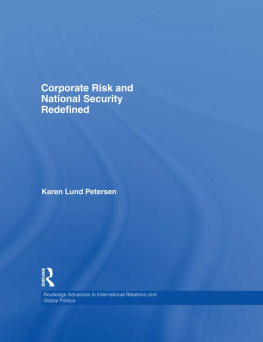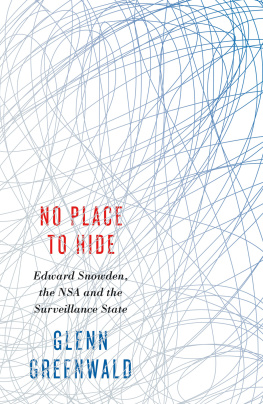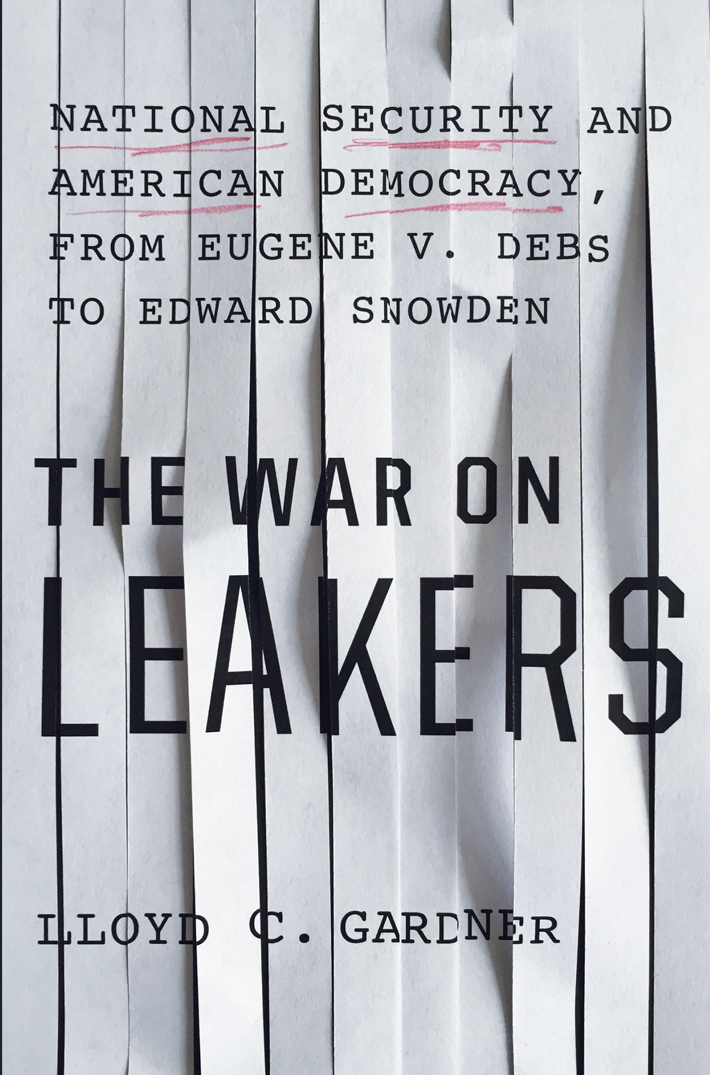The War on Leakers
ALSO BY LLOYD C. GARDNER
Killing Machine: The American Presidency in the Age of Drone Warfare
The Case That Never Dies: The Lindbergh Kidnapping
The Long Road to Baghdad: A History of U.S. Foreign Policy from the 1970s to the Present
The Road to Tahrir Square: Egypt and the United States from the Rise of Nasser to the Fall of Mubarak
Three Kings: The Rise of an American Empire in the Middle East After World War II
Iraq and the Lessons of Vietnam: Or, How Not to Learn from the Past (co-edited with Marilyn B. Young)
The New American Empire: A 21st Century Teach-In on U.S. Foreign Policy (co-edited with Marilyn B. Young)

2016 by Lloyd C. Gardner
All rights reserved.
No part of this book may be reproduced, in any form, without written permission from the publisher.
Requests for permission to reproduce selections from this book should be mailed to: Permissions Department, The New Press,
120 Wall Street, 31st floor, New York, NY 10005.
Published in the United States by The New Press, New York, 2016
Distributed by Perseus Distribution
LIBRARY OF CONGRESS CATALOGING-IN-PUBLICATION DATA
Names: Gardner, Lloyd C., 1934
Title: The war on leakers: national security and American democracy, from Eugene v. Debs to Edward Snowden / Lloyd C. Gardner.
Description: New York: The New Press, 2016. | Includes bibliographical references and index.
Identifiers: LCCN 2015027800 | ISBN 9781620970812 (e-book)
Subjects: LCSH: Official secretsUnited States. | Government informationUnited States. | Leaks (Disclosure of information)United States. | Electronic surveillanceUnited States. | DemocracyUnited States. | National securityUnited States. | BISAC: POLITICAL SCIENCE / Political Freedom & Security / International Security. | POLITICAL SCIENCE / Political Freedom & Security / Intelligence. | HISTORY / United States / 20th Century. | HISTORY / United States / 21st Century.
Classification: LCC JK468.S4 G37 2016 | DDC 364.1/31dc23 LC record available at http://lccn.loc.gov/2015027800
The New Press publishes books that promote and enrich public discussion and understanding of the issues vital to our democracy and to a more equitable world. These books are made possible by the enthusiasm of our readers; the support of a committed group of donors, large and small; the collaboration of our many partners in the independent media and the not-for-profit sector; booksellers, who often hand-sell New Press books; librarians; and above all by our authors.
www.thenewpress.com
Composition by dix!
This book was set in Electra
Printed in the United States of America
2 4 6 8 10 9 7 5 3 1
For our five grandchildren, Jamie, Dylan, Kyle, Asha, and Naiya
Table of Contents
Guide
CONTENTS
A building circular... The prisoners in their cells, occupying the circumferenceThe officers in the centre. By blinds and other contrivances, the Inspectors concealed... from the observation of the prisoners: hence the sentiment of a sort of omnipresenceThe whole circuit reviewable with little, or... without any, change of place. One station in the inspection part affording the most perfect view of every cell.
Jeremy Bentham, Proposal for a New and Less Expensive Mode of Employing and Reforming Convicts (London, 1798)
The main theme of this book is the relationship among the so-called intelligence community and the White House and Congress, and how that three-way marriage has developed over the years since World War I. The 1917 Espionage Act has now become the weapon of choice against leakers, but there has always been a campaign against leakers and, inevitably entangled with it, a desire to put leakers and protesters in the same bin as foreign spies and cast enforcement actions in terms of a balance between liberty and security. Indeed, no one has put this claim better than President Obama, who declared after the Snowden revelations that it had become necessary to make Americans comfortable with what had to be done. Critics of the intelligence community, on the other hand, see the greatest threat as that posed to U.S. institutions under the Constitution. The battleground has become the indictments under the 1917 Espionage Act, which the Obama administration has invoked more times than any other presidency. The long-standing campaign against leakers has now become a war.
Immediately after the first articles appeared drawing on Edward Snowdens enormous cache of government documents detailing the cooperation of tech companies with government demands for access to metadata, President Obama told a press conference on June 7, 2013, that he had come into office wary of the NSAs eavesdropping program. I came in with a healthy skepticism about these programs. My team evaluated them. We scrubbed them thoroughly. We actually expanded some of the oversight, increased some of safeguards. But my assessment and my teams assessment was that they help us prevent terrorist attacks. Later in the summer, as what the president called the drip-drop of new revelations challenging his statements that his pre-Snowden investigations got the balance just about right, the president appointed a small panel of experts to advise him on what further changes or reforms might be needed. It did so in December 2013, and we will see that the results were not at all consistent with claims that the program had prevented terrorist attacks.
The reactions of the president to questions about the National Security Agency (NSA) programs, to leaks about the Senate Intelligence Committees six-thousand-page report on torture of suspected terrorists in the George W. Bush administration, and to the fate of leakers illustrate the second major theme of the book: the effort of the White House not to get caught in a debate between the intelligence community and Congress or between critics and the agencies that carry out the programs. In regard to indictments under the Espionage Act that his Department of Justice put forward in leaker cases, Attorney General Eric Holder explained that many of these cases had orginated under the previous administration and there would be a morale problem if they were called off. It was an odd position to take, at least in some ways, because it suggests that no administration can ever go back over its predecessors actions and set a new course. Elections, then, could not be about change you can believe in in all circumstances. It also suggests, therefore, that since 9/11 there has been a fundamental shift in the balance of power within the federal government and it is necessary now to talk about an imperial presidency rather than an imperial president.
Obama had, in fact, explained that the limitations on a post-9/11 president in managing the imperial presidency obliged him to avoid getting between the intelligence community and its critics. Part of my job, he said in an interview with ABC News several days before his inauguration, is to make sure that, for example, at the CIA [Central Intelligence Agency], youve got extraordinarily talented people who are working very hard to keep Americans safe. I dont want them to suddenly feel like theyve got to spend all their time looking over their shoulders.
This book will look over a lot of shoulders, going back to the enactment of the Espionage Act in 1917 to discuss how the act was used to suppress dissent. I will also examine how presidents have gradually become more and more dependent on the intelligence community after World War II, by assigning it more and more duties to keep America safe and becoming less independent of its claims to immunity. Finally, this story turns again to the Espionage Act, as the vehicle of choice for enforcing the governments assertions about where the balance between security and privacy lies and what punishment should be meted out to leakers (and perhaps tomorrow to recipients and publishers). The symbiosis is visible perhaps best in the close relationship between CIA director John Brennan and President Barack Obama, which began after the 2008 election, developed into a joint worldview, and has set a far-reaching precedent between an elected leader and the heads of the intelligence community.














